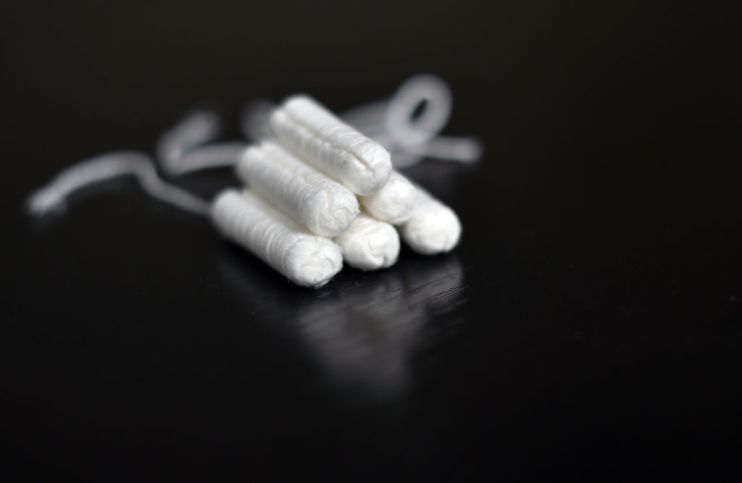The tampon tax isn’t the problem — our warped VAT system is

Last week, Boris Johnson promised to scrap the so-called “tampon tax” — the VAT levied on feminine hygiene products.
The current VAT regime, which dates back to the 1970s, cannot be changed while Britain remains in the EU.
Feminists and progressives have long argued that such a tax is unfair and sexist, so scrapping it probably seems like a smart way for the Conservatives to target this group with the benefits of Brexit.
It could even be argued that the policy makes sense from a free market perspective: here is a chance to get rid of another tax which is increasing the cost of living for women.
However, such a move would be deeply misguided.
What the tampon tax situation serves to do is highlight the absurdity of our VAT system. Most goods and services in the UK attract the standard rate of VAT at 20 per cent. Others, such as sanitary products, face a five per cent levy. And some — namely food products and, oddly, children’s shoes — are VAT exempt.
Such a system creates bizarre outcomes. Take everyone’s favourite example: Jaffa Cakes. Are they are a biscuit or are they a cake?
Jaffa Cakes are found in the biscuit aisle at the supermarket and you’d probably scoff a few during your tea break at work. But for VAT purposes, a Jaffa Cake is a cake (the clue is in the name). This was the ruling of a tax tribunal. A giant Jaffa Cake was baked in order to demonstrate the cake-like qualities of the spongy chocolate discs.
Why does this matter? Chocolate-covered cakes are zero-rated when it comes to VAT, whereas covering a biscuit in chocolate will attract the standard rate of 20 per cent.
Part of the logic behind this is the idea of essential goods versus luxury goods. A chocolate-covered cake was seen in Whitehall in the 1970s as the staple of good honest folk, whereas smothering a biscuit in chocolate makes it a luxury good only ever consumed by the filthy rich.
Such a situation is clearly absurd. What is more, it is applied inconsistently. As is rightly pointed out by campaigners who want to scrap the tampon tax, sanitary products are clearly not a luxury. However, neither is soap, for example — which is just as essential to personal hygiene, and also incurs VAT.
The absurdity doesn’t stop there. Chocolate buttons, for example, are subject to the standard rate. That is, unless they are to be used to decorate a cake, in which case they are zero-rated. Buying nuts still in their shells incur no VAT, but out of their shells, expect to shell out more as they are charged the standard rate.
Buying a book? Good news, no VAT — unless it’s an eBook, then you’ll have to pay more. It might make sense to learn that a bike helmet is exempt from VAT, but is slightly more puzzling that a chocolate teacake from Marks & Spencer is also zero-rated.
All of this creates burdens for businesses, which have to spend time and money ensuring that they comply with VAT, with the risk of lengthy and expensive legal battles against HMRC over the status of products. Surely the resources of both businesses and the law courts could be better utilised in other pursuits?
And that’s only on the business side. The system also creates economic distortions for consumers, who make choices based on the VAT rate instead of their own preferences.
Rather than scrapping the tampon tax and creating yet another exemption, complicating the tax system even further, the government would do better to go the other way, broadening and simplifying the VAT base. By scrapping the various exemptions and different rates, the overall rate could be much lower — on everything.
This would boost the Treasury’s coffers, while allowing us to cut more economically damaging taxes and target welfare to those who need it most.
The debate over the tampon tax could therefore lead to a fairer, more logical tax system for all.
Main image credit: Getty
